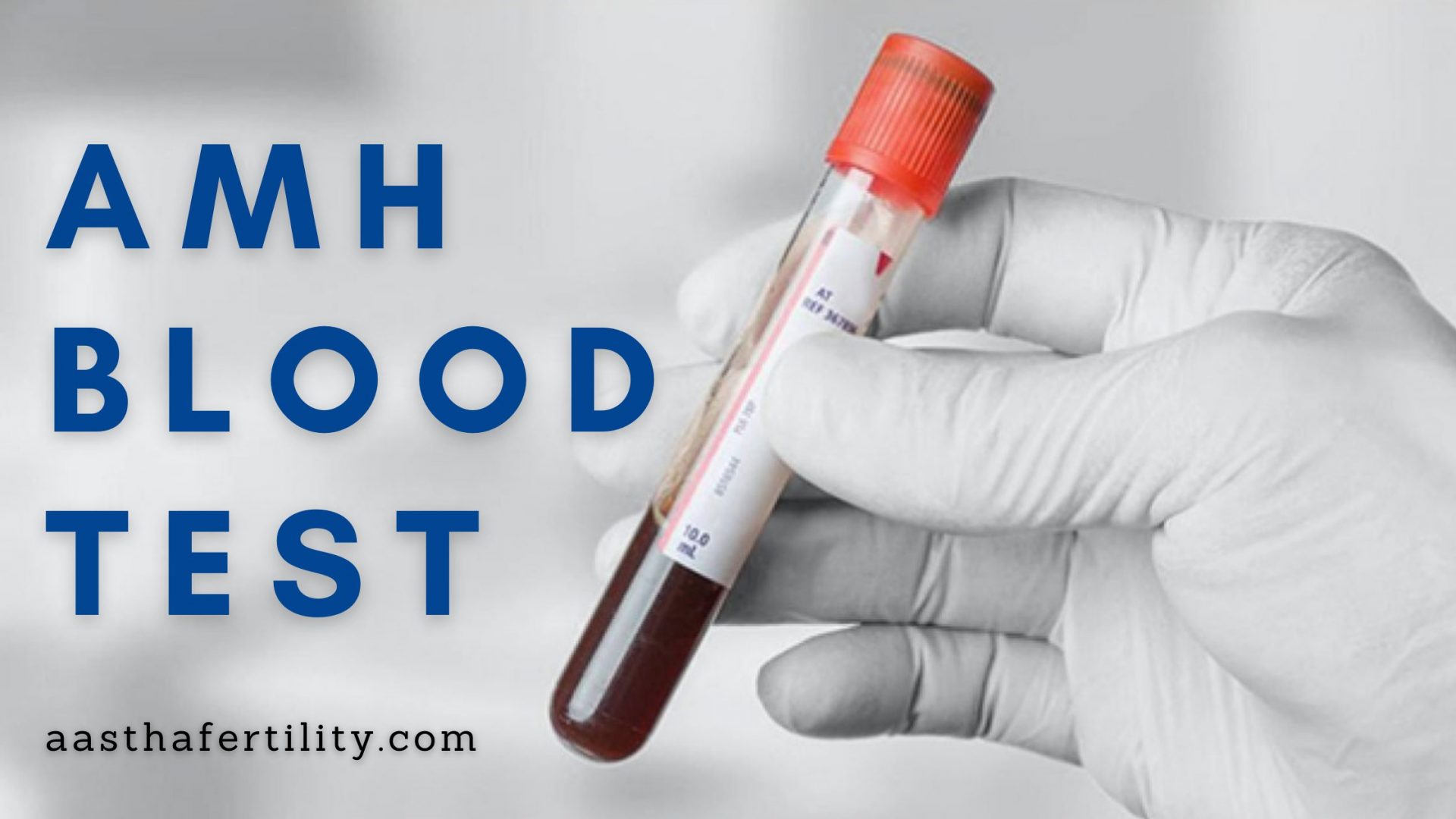Table of Contents
Toggle
Aastha fertility care identifies the correct cause of infertility in men and women in the initial workup. This increase the success rate of IVF and IUI in the first cycle itself, thus saving the cost of infertility treatment.
The initial workup includes a medical history and physical examination.
For Female Partner: tests will focus on ovarian reserve, ovulatory function, and structural
Abnormalities: Hormone profile [AMH, FSH, LH, ESTRADIOL, etc], Transvaginal Sonography [TVS], Tubal Patency Tests [HSG, SSG]
Male factor: medical history and physical examination, Semen Analysis, Scrotal Sonography [TRUS].
Infertility in Men and Women
Infertility is defined as failure to achieve pregnancy within 12 months of unprotected intercourse or therapeutic donor insemination in women younger than 35 years. One in every eight couples has infertility, a medical condition characterised by the inability to conceive even after regular unprotected intercourse.
Earlier, we believed that women only contribute to infertility cases. Breaking the myths, infertility is not always a woman’s problem. It can be due to medical or reproductive causes of infertility in both males and females. Studies have proven that-
- 32% of cases of infertility are due to a male partner’s problems,
- 32% due to female partner’s concerns,
- 17% due to combined male and female issues,
- And the rest, 19%, due to unexplained reasons.
Infertility issues are common but fortunately curable. Don’t blame yourself for any unfortunate event; instead, take control of your life and take the right step. We further highlight the common reasons that may impede your chances of getting pregnant. Our infertility specialist rules out the causes influencing pregnancy success.
What are the leading causes of Infertility in Females?
Conception is complicated in women, and there are a whole lot of factors that can lead to female infertility. Some of the most common causes include:
Fallopian Tube Damage
According to the National Infertility Association, the fallopian tube accounts for more than 20% of female infertility cases. If the fallopian tubes are blocked or scarred, it is difficult for the sperm to travel to its destination. Blocked fallopian tubes also make it difficult for the fertilised egg to travel to the uterus to develop into a foetus.
There are multiple reasons for fallopian tube damage, including a prior ectopic pregnancy or pelvic inflammatory disease. Therefore, a history of pelvic pain or painful periods are common signs of blocked fallopian tubes.
Maternal Age
Maternal age is also one of the primary reasons for increasing infertility cases. Women’s reproductive organs’ capability to produce eggs depletes over time, and more than 20% of females’ fertility potential is lost during their 35-40 years of age.
Endometriosis
Endometriosis refers to the growth of the endometrium outside the uterus. The reasons for endometriosis are still unknown, but experts have mentioned that this can happen during menstruation. During this period, a small amount of the endometrial tissue may enter the abdominal tissue via fallopian tubes, attaching itself to organs and further leading to adhesions.
Endometriosis can build scar tissues outside or between the uterus, fallopian tubes, and ovaries, affecting the transfer of eggs to the fallopian lines. It can also lead to the build-up of endometrial cysts in the ovaries, further preventing the release of eggs.
Disturbance in Oocyte Maturation
Hormonal imbalance can also affect the ability to get pregnant or conceive. Hormonal dysfunction can be the reason for oocyte maturation, luteal phase defect, or ovulation.
Elevated or increased levels of male hormones can lead to ovarian cysts, restricting the chances of conception. Other factors that might lead to hormonal imbalance are overweight or underweight, sudden weight gain or loss, thyroid disorders, stress, and medications.
PCOS (Polycystic Ovarian Syndrome)
More than 9% of total women’s infertility cases are due to PCOS. It causes a hormonal imbalance in the body that triggers excess testosterone production, affecting the ovulation process. Women experiencing PCOS might suffer from weight gain, excess facial hair, and acne while missing their regular period dates. there are 4 types of PCOS.
Sexually Transmitted Diseases
STDs like gonorrhea and chlamydia can lead to pelvic infections, further interfering with the conception chances and process. Both these STD diseases are treatable with antibiotics and can be cured.
Uterus Problems
Sometimes, there’s a possibility that an egg cannot attach itself to the uterine wall and won’t be able to develop into a fetus. Uterus issues can be due to polyps and fibroids, affecting the tissue growth in the wall of the uterus. Uterus problems can also occur due to the scar tissues in the uterus from miscarriage, infection, and abortion. Unexplained and sudden lower abdominal bloating or pain are the symptoms of uterine problems. If you have a bulky uterus, you can get rid of it bulky uterus with these simple steps.
Other Female Infertility Causes
The other causes that might affect female infertility include medications, alcohol consumption, autoimmune disorders, environmental hazards, uterine fibroids, kidney disease, cancer, and its treatment.
Common Causes of Infertility in Males
Most reasons for male infertility are related to sperm health and motility, making it difficult for the semen fluid to reach and fertilise the eggs. Common reasons for male infertility issues are:
Sperm Production Problems
As already mentioned, male infertility is mainly due to the sperm’s inability to fertilise the egg. Sperm needs to ejaculate from the penis to reach the egg, but sometimes, the blockage may hinder the process. Causes for this inability include blockage in testicles, retrograde ejaculation, or sexual problems. Diabetes, bladder issues, prostate issues, and other diseases are likely to affect sperm production.
Sperm Motility Issues
Most male infertility issues account for sperm motility. The average sperm count in ejaculation is around 20 million, and men with less than 10 million sperm per millimeter are diagnosed with oligospermia (referring to low sperm count) or azoospermia (referring to low sperm production). It just takes one sperm to fertilise the egg, but the chances of sperm cells penetrating and reaching the egg are rare. Go to fertility experts if you have low sperm count signs.
Alcohol Consumption and Smoking
Consumption of alcohol and smoking patterns adversely affect male fertility, reducing sperm count or semen quality. Moderate drinking may not affect much, but consuming alcohol daily may harm the liver and other organs, lowering testosterone levels while making men less fertile. It is also likely to shrink testicles, slowing sperm motility and causing an erection difficult.
Other Male Infertility Causes
Other possible causes that can affect infertility are marijuana and other drugs, obesity, heat exposure, medical conditions, STDs, and toxic substances. Make sure to regularly get your sperm motility checked to know which of the above-listed factors affects your fertility.
Genetic Factors Influencing Infertility
Infertility in couples is frequently linked to genetic factors. Males and females experience different outcomes from inherited chromosomal abnormalities and gene mutations.
Genetic Illnesses That Result In Infertility In Women
If they have a family history of early menopause or endometriosis, these women are more likely to have difficulty getting pregnant.
Female infertility can also be caused by chromosomal abnormalities or gene mutations that impact a woman’s ovulation capacity. Instances of both consist of:
- Women with poor nutrition due to mutations in the cystic fibrosis gene may experience thicker cervical mucus or problems with ovulation.
- Female infertility may result from Kallmann syndrome if the body is unable to produce hypothalamic or pituitary hormones.
- A chronic respiratory tract infection called primary ciliary dyskinesia results in infertility in women due to abnormal cilia in the fallopian tubes.
Genetic Illnesses That Result In Infertility In Men
Male infertility can result from certain chromosomal disorders or gene mutations, which specifically impact sperm production or obstruct its flow. Male infertility resulting from mutations, on the other hand, is much less common or poorly understood. Instances of both consist of:
- Sperm flow in men can be affected by congenital absence of the vas deferens, which mutations in the cystic fibrosis gene can cause.
- Men who are born with an extra X chromosome have a condition called Klinefelter syndrome that affects the production of testosterone and sperm.
- Men may not be able to reach a normal sperm count if they have a Y chromosome deletion or a missing piece of the Y chromosome.
Emotional and Psychological Impact of Infertility
Both partners may experience psychological distress and emotional stress as a result of infertility. Shock, depression, sadness, anger and frustration, loss of self-esteem and self-confidence, and a general loss of control are common reactions to infertility. Infertility has different emotional and psychological effects on different people. Some people may only experience mild distress, whereas others may suffer from severe mental health issues.
- Many people are embarrassed or guilty about their infertility even though it is not their fault. They may believe they are failing their partner or family or that they are defective in some way.
- Infertility can cause feelings of anxiety and depression. Couples may be concerned about their chances of conceiving, the financial and emotional costs of treatment, and the impact of infertility on their relationship.
- Any relationship can be strained by infertility. Couples may disagree on how to proceed with treatment or feel resentful of each other’s emotions.
Latest Advances in Infertility Treatments
PRP Treatment Or Ovarian PRP Treatment
Your platelet-rich plasma is injected into your ovaries during ovarian PRP therapy to increase both the quantity and quality of eggs produced.
Natural IVF Cycle
The reason the procedure is called a “natural” IVF cycle is that it resembles natural reproduction in many ways because the ovaries are not stimulated.
Embryoscope
The latest innovation in IVF, the embryoscope, is an intriguing time-lapse incubator that includes a camera. It prevents the embryo from being exposed to external conditions by enabling continuous observation of its development without taking it out of the incubator. The embryologist uses this technology to choose the best embryos for implantation.
Preimplantation Genetic Testing
PGT includes both PGD (Preimplantation Genetic Diagnosis) and PGS (Preimplantation Genetic Screening). PGT-A, or the Preimplantation Genet test for Aneuploidies, examines the embryos created during an IVF cycle genetically. Before the embryos are placed in the uterus, this test checks them for any chromosomal abnormalities. By ascertaining the chromosome count of every developing embryo that reaches the blastocyst stage, PGS facilitates more effective embryo selection.
Laser-assisted Hatching
The most recent IVF technique, known as laser-assisted hatching, creates a tiny crack before the embryo is placed in the uterus in the hopes that this hatching will aid in the embryo’s implantation and result in a successful pregnancy.
The I-Womb Method
The intelligent womb technique, or I-womb, is used in embryology labs to grow embryos. The I-womb technique makes sure that everything precisely mimics a womb’s environment and permits the embryo to develop naturally outside of the mother’s womb.
Vitrification
Vitrification is the process of quickly freezing eggs, sperm, or embryos while incorporating cryoprotective substances like sugars, salts, glycerol, FBS, and glycols. The amount of DNA damage brought on by ice crystal formation is reduced by this cryopreservation method.
Invocell or Vagincubator
An intervaginal culture device is the most recent IVF technology (IVC). It uses the vagina’s natural environment to support the early development of the embryo. The IVC device fertilizes the egg and sperm inside the body for approximately five days as opposed to outside the body as it would in an embryo lab. The thumb-sized plastic IVC is removed from the vagina after five days, and the embryo created inside is subsequently implanted in the uterus.
Conclusion
Apart from majorly affecting the chances of getting pregnant, causes of infertility in males and females can also negatively affect mental and emotional health. If not addressed within time, infertility may pose a relationship challenge and strain your finances.
But being diagnosed with infertility does not mean you can never have your baby. Advancements in medical science and technologies have invented affordable and effective ART and other infertility treatments that will eventually increase your chances of having a child. All you need is a positive attitude and ideal medical assistance. Consult fertility experts at Aastha Fertility Center now to get the best assistance, helping their patients throughout the fertility treatment for a positive outcome.
Frequently Asked Questions
1. How do environmental factors, such as exposure to certain chemicals, impact fertility?
Environmental factors, such as chemical exposure, can have a variety of effects on fertility. Some chemicals can cause reproductive organ damage, disrupt hormone production, or interfere with sperm or egg production.
2. Are there any specific exercises or routines recommended to boost fertility?
Yoga and other low-intensity exercises can help improve blood circulation, which will guarantee that your reproductive organs receive oxygen- and nutrient-rich blood flow, enhancing ovulation, fertility, and menstrual cyclicity.
3. How does stress influence infertility in both males and females?
Stress can lead to irregular menstrual cycles, problems with ovulation, and decreased progesterone production in women. In males, it can cause decreased sperm count and motility.
4. What are the success rates of various infertility treatments?
The success rate of IUI is around 10-15% per cycle. The IVF success rate is around 40% per cycle in women under the age of 35 and declines with age.
5. How often should couples get tested for fertility if they’re trying to conceive?
If you have regular intercourse without using birth control for 12 months or more if you are under 35 or for six months if you are over 35, it’s time to see a doctor.
6. Are there any natural remedies or supplements that can help improve fertility?
There are several natural remedies that can help improve fertility in both men and women, such as folic acid, zinc, vitamin D, and omega-3 fatty acids.
7. How does chronic illness or long-term medication use impact fertility?
Many chronic illnesses or long-term medications can inhibit the generation of sperm and eggs, which can make it challenging to conceive.
8. What are the role of nutrition and diet in infertility?
An imbalance in protein and calories from eating the wrong foods causes severe underweight or overweight, which in turn affects ovarian function and increases infertility. Specifically, it is thought that metabolic diseases such as diabetes, obesity, and hyperlipidemia—which are frequently linked to high-calorie diets—affect a woman’s ability to conceive either directly by impairing the health and differentiation of her eggs or indirectly by interfering with the pituitary-hypothalamic axis, which leads to abnormal oogenesis. It may also cause ovulatory disorders.
Male obesity may affect hormone levels and can cause low sperm counts and decreased motility.
Fertility in men and women is directly impacted by the foods you eat. Maintaining a healthy BMI, choosing nutritious foods, and living a healthy lifestyle can all positively impact your reproductive health.





Leave a comment